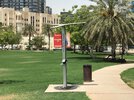- Joined
- 3 July 2009
- Posts
- 28,096
- Reactions
- 25,302
At last, the narrative is turning around to the technical issues with BEV's, the trails being carried out are obviously highlighting issues, which is a lot better than the problems showing up when the uptake increases.
AGL is also carrying out charging trails and some smart charging control software from the U.K.

 www.theage.com.au
From the article:
www.theage.com.au
From the article:
Australian power giant Origin Energy has called for governments to provide incentives for electric car smart chargers in garages to prevent motorists plugging in en masse during the peak evening demand period from overloading the grid.
As Victoria and NSW embark on ambitious plans to accelerate electric vehicle uptake, an Australian-first trial conducted by Origin has found that when EVs are adopted more widely charging times will need to be managed to minimise risks of blackouts and price spikes.
The trial has so far installed smart chargers for 70 residential electric vehicle owners and 33 businesses and obtained their baseline charging data. Smart chargers co-ordinate recharging times with periods of surplus solar-power supply, such the middle of the day, and avoid adding strain to peak demand periods on the grid from 5-6pm onwards.
Chau Le, Origin’s head of e-mobility, said more than 60 per cent of participants prior to the trial had been plugging their car batteries into standard sockets in their garages, usually during the evenings. With smart-charging devices, most charging still occurred in the evening, but the consumption could be spaced out to ease the load on the grid, she said.
“Without incentives and regulatory policies that encourage smart charging, that’s what’s going to happen when mass-market adoption takes off; you’re going to have all these EVs [electric vehicles] that are being charged that cannot be enrolled onto smart-charging programs or cannot be managed,” Ms Le said.
“We do expect ... that will cause constraints on the network and the wholesale market, if it’s not managed properly.
The trial was jointly funded by the federal government’s Australian Renewable Energy Agency.
As many electric cars are likely to spend extended periods parked in home garages, power companies say smart chargers could also work like “batteries on wheels”. When plugged in, car batteries could soak up excess power from rooftop solar panels, dispense it later into virtual power plants – groups of hundreds or thousands of homes with solar and batteries linked up to manage demand and energy flows – and generate a potential profit for customers.
Electric cars could account for an additional 22 terawatt hours of load on the electricity grid by 2040, according to Origin.
The Victorian government has set a target for electric vehicles to account for 50 per cent of new sales by 2030 and subsidies of up to $3000 for buyers, while NSW on Sunday also announced a $3000 upfront discount and said it would waive stamp duty for buyers.
AGL interim managing director Graeme Hunt, who welcomed the NSW government’s announcement on Sunday, said initiatives that facilitate the rollout of electric vehicles and investment in infrastructure were important steps in electric vehicles “becoming a bigger part of Australian life”.
“The uptake and integration of electric vehicles in the Australian market will be influenced by initiatives that facilitate consumer access and developing technical insights to inform regulatory design,” he said.
AGL is also carrying out charging trails and some smart charging control software from the U.K.
‘Batteries on wheels’: The smart-charging tech in garages needed to drive EV boom
One of Australia’s biggest power companies has called on governments to promote smart chargers in garages to prevent EV motorists from overloading the grid.
Australian power giant Origin Energy has called for governments to provide incentives for electric car smart chargers in garages to prevent motorists plugging in en masse during the peak evening demand period from overloading the grid.
As Victoria and NSW embark on ambitious plans to accelerate electric vehicle uptake, an Australian-first trial conducted by Origin has found that when EVs are adopted more widely charging times will need to be managed to minimise risks of blackouts and price spikes.
The trial has so far installed smart chargers for 70 residential electric vehicle owners and 33 businesses and obtained their baseline charging data. Smart chargers co-ordinate recharging times with periods of surplus solar-power supply, such the middle of the day, and avoid adding strain to peak demand periods on the grid from 5-6pm onwards.
Chau Le, Origin’s head of e-mobility, said more than 60 per cent of participants prior to the trial had been plugging their car batteries into standard sockets in their garages, usually during the evenings. With smart-charging devices, most charging still occurred in the evening, but the consumption could be spaced out to ease the load on the grid, she said.
“Without incentives and regulatory policies that encourage smart charging, that’s what’s going to happen when mass-market adoption takes off; you’re going to have all these EVs [electric vehicles] that are being charged that cannot be enrolled onto smart-charging programs or cannot be managed,” Ms Le said.
“We do expect ... that will cause constraints on the network and the wholesale market, if it’s not managed properly.
The trial was jointly funded by the federal government’s Australian Renewable Energy Agency.
As many electric cars are likely to spend extended periods parked in home garages, power companies say smart chargers could also work like “batteries on wheels”. When plugged in, car batteries could soak up excess power from rooftop solar panels, dispense it later into virtual power plants – groups of hundreds or thousands of homes with solar and batteries linked up to manage demand and energy flows – and generate a potential profit for customers.
Electric cars could account for an additional 22 terawatt hours of load on the electricity grid by 2040, according to Origin.
The Victorian government has set a target for electric vehicles to account for 50 per cent of new sales by 2030 and subsidies of up to $3000 for buyers, while NSW on Sunday also announced a $3000 upfront discount and said it would waive stamp duty for buyers.
AGL interim managing director Graeme Hunt, who welcomed the NSW government’s announcement on Sunday, said initiatives that facilitate the rollout of electric vehicles and investment in infrastructure were important steps in electric vehicles “becoming a bigger part of Australian life”.
“The uptake and integration of electric vehicles in the Australian market will be influenced by initiatives that facilitate consumer access and developing technical insights to inform regulatory design,” he said.






